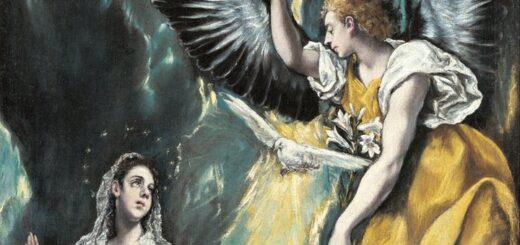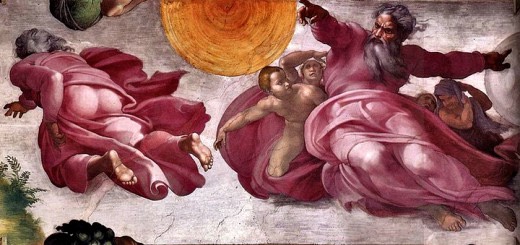Because it is wrong to use the phrase "male and female created them" in gender disputes
Article by Richard J. Clifford SJ* published on the website of Outreach (USA) on June 25, 2023, freely translated by Diego de La Tenda di Gionata
It is understandable that Jews and Christians turn to the Bible to find answers to contemporary questions. Often they turn to the initial chapters of Genesis, which tell how God created the world and human beings with wisdom. It is therefore natural that we humans turn to these chapters to learn how to live a fruitful and happy life.
An example of interpretation, or rather of reinterpretation, of a verse of Genesis is the recent revision of the New American Bible and New Auditor Standard Version of Genesis 1, 26 "We are man" (in Hebrew, hā'ādām). New American Bible translates it with "humans" e New Auditor Standard Version with "human genre".
The translators reviewed the verse based on ancient parallel texts and stressed, correctly, that "man" in this verse does not refer to a single male (the most common meaning of "man" in English), but to humanity, A less common meaning in English.
Recently, another controversy has addressed readers to the stories of the creation contained in the genesis. This controversy does not concern the inclusive language as in 1.26, but the phrase that follows in Genesis 1, 27: "Male and female created them".
Why this new interest? Because many people, especially among young people, say that their gender identity does not correspond to the sex recorded at birth and try to live according to their effective gender identity.
This fact worries those who believe that these statements are in contrast with the literal meaning of Genesis 1, 27. According to their interpretation, the phrase is a guarantee
Scriptural for only two genres. God has established two sexes at the time of creation and this divine act is still valid today.
But the phrase contained in Genesis 1, 27 denies the statements of transgender people mentioned above? Do you say at least something about the question? Here is the complete verse in the New Auditor Standard Version: «God created man in his image; In the image of God he created it; male and female created them. "
The first duty is to determine the context of the verse. Outside the context, the formulation itself might seem in support of the affirmation according to which God has equipped the human race with only two genres: male and female.
However, this verse must not be interpreted separately from its context; It is part of an account of carefully elaborate creation, in which each verse is meaning from the story as a whole. For most of the Old Testament, the interpreters must deduce the context from the text itself.
What does the entire story of the creation tells us in the first chapter of Genesis on its context and purpose?
The chapter opens the Bible showing God to work, in this case the masterful transformation and without haste by God of the dark primordial mass and inert in a harmonious world, suitable for human home.
The text suggests that its purpose was to reassure a community devastated on the fact that their creator had passed chaos and immobility and had guaranteed that animated beings
Of all kinds (including humans) they would have continued to exist despite the serious threat of extinction. The text depicts a powerful divinity intent on safeguarding e
Promote threatened life.
Other writings of the period describes how the community struggled to believe in a God who would have saved them from extinction. Psalm 115, 2-3, for example, asks God with anguish: "Why should nations say: / 'Where's their God?'". The psalms then give their response harshly conquered: "Our God is in the skies / and does everything he wants".
The first chapter of Genesis responds to the doubts of the community on their future showing how God has made sure that all animated beings will continue to exist through their offspring.
The text does it in an surprisingly original way, stating that God has implanted a seed in every living creature (in Hebrew, Zera ') from which future generations will be born. The word "seed" appears six times in the text, all referring to plant and animal life in Genesis 1.
For human beings, however, the text uses an alternative expression to express the same concept "male and female created them". "Male and female" therefore means that humans, by divine will, share the vital power of other forms of life on earth.
The generous commitment of God in supporting human life is the appropriate context to interpret the phrase "male and female created them".
In its context, it means that human beings have the same "seed mechanism" which ensures that they will continue to exist by generating descendants that will replace previous generations.
Genesis 1, 27 assures every human being, not only to Israel, that God has implanted the means to continue the future existence of the human race.
The expectation that this single verse of Genesis may resort modern disputes on the genre is completely incorrect. There is no indication that the ancient author knew something about the modern question of gender identity. And the text gives no clue.
Using the expression "male and female created them" against (or favor) of contemporary discussions on the genre means reading in the biblical text rather than reading the biblical text.
*Richard J. Clifford SJ is one of the main scholars of the Old Testament, is the principal founder of the School of Theology and Ministry of Boston College and the former principal of the Weston Jesuit Theology School from 1983 to 1987. Former President of 'Catholic Biblical Association, started teaching the former Weston College in 1964 and retired from Boston College in 2023.
Original text: Richard J. Clifford, SJ: Using "Male and Female He Created Them" to Adjudicate Gender Controversies is "Thoroughly Mixguanced"






